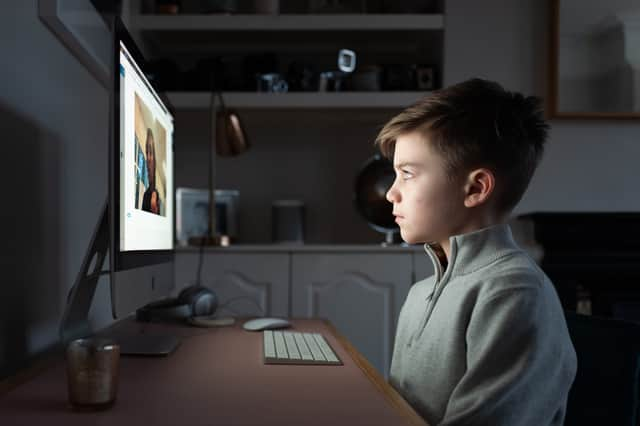Lockdowns badly affect children’s speech and language skills - and can have long-term effects


The past year of lockdowns has had a negative impact on young children’s speech and language skills, new research has found.
Data from 50,000 pupils and a survey of schools across England have shown that an increased number of four and five year-old children need help with language.
Deprived of social contact
Advertisement
Hide AdAdvertisement
Hide AdResearch from the Education Endowment Foundation (EEF) suggests that the measures taken to prevent the spread of coronavirus over the past year have deprived the youngest children of social contact, hindering experiences that are essential for increasing vocabulary.
Reduced or no contact with grandparents, social distancing, the wearing of face coverings in public and the inability to enjoy play dates with other youngsters, have left children less exposed to conversation and everyday interactions.
Evidence shows that poor speech development can have long-term effects on learning, and many schools have said they are worried about the impact the pandemic has had on young children in particular.
Of 58 primary schools surveyed across England, 76 per cent said that pupils who started school in September required more support with communication compared with previous years.
Advertisement
Hide AdAdvertisement
Hide AdAdditionally, 96 per cent said they were concerned about pupil’s speech and language development, while 56 per cent of parents expressed concerns about their child starting at school following the lockdown in the spring and summer.
Findings from the EEF are also reflected in data from the company Speech Link, which offers standardised assessments to primary schools.
Among 50,000 young children aged four and five who started school in September, an extra 20 to 25 per cent needed help with language skills in comparison to the year before.
Concerns have also been raised about the impact of the pandemic on pre-school children.
Advertisement
Hide AdAdvertisement
Hide AdThe Institute of Health Visiting said that up to 63 per cent of health visitors in England, who check on the development of babies and toddlers, were redeployed early on in the pandemic.
What is being done to help?
The UK government has said it is investing £18 million in early-years catch-up, including extra help for those in Reception.
Summer provision for lost learning will also be offered to secondary schools in England for pupils who experience the most disruption to their learning during the pandemic.
Secondary schools will be encouraged to bid for a share of a £200 million government fund for summer schools this year, which is predominantly being targeted towards incoming Year 7 students.
Advertisement
Hide AdAdvertisement
Hide AdThe government anticipates that a two-week summer school will give these students an opportunity to make up some lost academic ground before they start a new school.
The summer schools will include a variety of activities, from group activities, such as sports, to mental health support and academic catch-up, such as maths and English lessons, the Department for Education (DfE) said.
Education Secretary Gavin Williamson said: “Additional support this summer – on top of the National Tutoring programme and additional funding for schools – will help boost learning and wellbeing plus help prepare those pupils about to start secondary schools.
“We’re supporting schools to plan their summer provision as early as possible, and making sure parents and pupils themselves have the notice they need to plan their own summers.
Advertisement
Hide AdAdvertisement
Hide Ad“I am confident that this summer of enrichment and engagement in academic work will be a great success, tailored to local needs by the wonderful heads and teachers who best understand the needs of their students.”
Schools can now sign up via an online form on gov.uk to confirm their plans, with flexibility for schools to target funding at other groups of students.
Parents will hear from their schools over May and June as they progress with their planning, but it remains at the discretion of schools which students they target their summer school offer towards.